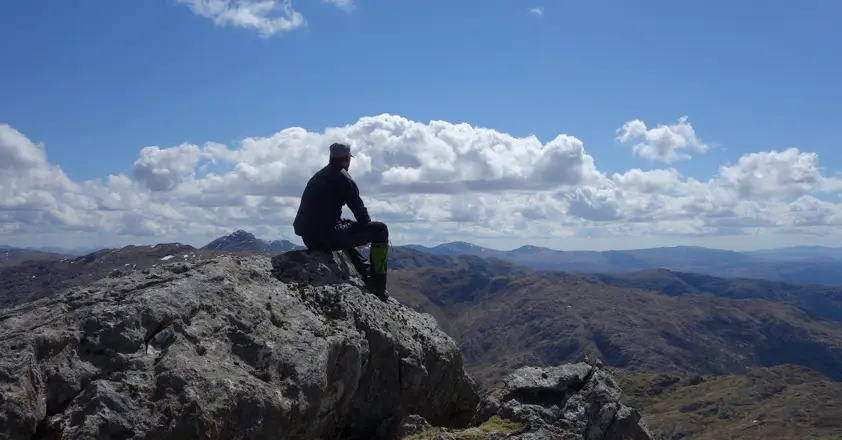This year, as in most recent years, I'll be heading to Scotland and trekking from one coast of the country to the other, hoping to find my way physically through the landscape, but loose myself mentally for a couple of weeks. This year also marks 30 years working in the paper industry, and 30 years working for UPM. It's also marks 30 years of interest in the environmental credentials of paper. And as an industry insider it's easy to forget just how incredible a material paper is.
But back to the walking, and there are a few things which really add to the enjoyment of a trek; not having to carry too much weight on my back, feeling I've been able to detach myself from everyday life if only for a short while, and knowing that I'm treading lightly along the way and not adversely impacting the environment I'm passing through. And it's recently struck me that these are similar reasons why I feel an affinity for paper and why the paper industry was such an inspired career choice for a self-confessed environmentalist.
Let's take that issue of weight. With each decade my fitness declines a little (though I try to hide it), and with it goes the desire to shoulder 20 kg of camping equipment over the hills. I'm not one of those obsessive backpackers who will saw the handle of their toothbrush to save 5g, but I move far more efficiently if I carry less weight. Luckily, even though walking may be as old as the hills, advances in materials mean that I need to carry much less weight these days.
"It's the same with paper, a material with a long history, but also one which has continually developed."
I started my career at a paper mill in Wales, and the paper that mill produces today is now almost 20% lighter than it was, and yet out-performs its predecessor in almost every way. Lighter weight paper means less raw materials used, less energy and water used to produce it, and less transport needed, not to mention potential cost savings. Thinner, lighter papers like UPM's EcoLite range of papers for books and inserts are a great example of modern papers offering an ecological option without compromising the reading experience.
What of the desire to detach myself from everyday life for a couple of weeks each summer? In a recent radio program about a book lending project, an interviewee said that after reading a book cover to cover, she felt as though she had been on holiday; the book had been a holiday for her head. And there's certainly something unique about print on paper, and particularly printed books, which encourages us to detach ourselves from the outside world and set our minds free for a while.
The printed word holds our attention whilst allowing our imagination to wander, free from shackles. e-readers of course have their place in today's high-tech world, but there's something about electronic devices which leaves me feeling that they have an invisible wire connecting me to something. I find the devices themselves a distraction and the digital word never fully holds my full attention. Call me a luddite, but I'd rather leave the electronic devices at home when I go walking, along with the solar panel, the power pack, and the GPS too. Following a GPS is like walking along a tunnel in the landscape, only seeing what is shown on a small screen. A printed map, for all the frustration it causes trying to fold one in high wind, gives me a greater appreciation for the landscape around me.
"Running your fingers across a paper map is like reading the contours of the land itself."
Indeed, I have a drawer at home in which resides a wealth of outdated technology; portable CD players, mini discs players, electronic organisers and all styles of mobile phone. Each now worthless, non-recyclable, and having no emotional attachment. Next to that drawer stands one of many bookcases in the house. And on it are some of the books that have accompanied me on treks across the decades, from Joe Simpson's 'Touching the Void' which I read whilst sitting out a snowstorm in South America, to Gavin Maxwell's 'Ring of Bright Water' which was open as I watched otters play in the sea of the west coast of Scotland. Each, like the paper they are printed on, has an enduring and endearing quality; each can bring back memories of the time I lost myself reading them.
So what book will I be in my rucksack on this year's trek? Well that honour goes to 'The last hillwalker' by John D. Burns. It's the biography of a man's life of hillwalking, somebody who starts to believe that hillwalking as he knew it is becoming extinct as a pastime, but realises that it isn't; it's simply changing and developing into the future. I think this story may be a metaphor for the very paper it's written on.
